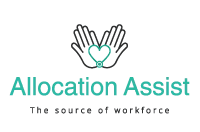Dr. Basirat Towobola is a UK CCT Consultant Obstetrician and Gynaecologist with subspecialist training and expertise in urogynecology, vaginal surgery, and advanced labour ward practice. Prior to relocating to the United Arab Emirates in September 2023, Dr Basirat was a Consultant Obstetrician and Gynaecologist and Urogynaecology Lead at East Sussex Healthcare NHS Trust (ESHT) for around five and a half years. Dr Basirat is passionate about educating and empowering her patients to make the right choices and is committed to continually improving healthcare for women. Read our interview with Dr Basirat Towobola, Consultant Obstetrician and Urogynaecologist. She is a Member of the Royal College of Obstetricians and Gynaecologists (MRCOG), British Society of Urogynaecology, International Continence Society, and International Urogynaecological Association.
Thank you so much for your time today, Dr. Basirat. It’s so lovely to see you as always. Would you start off by giving us a brief background about yourself and your training?
Thank you so much for having me, Emilie. I’m a consultant obstetrician and urogynecologist currently in Tawam Hospital in Al Ain. I did my postgraduate specialist training in obstetrics and gynaecology, specifically focusing on urogynecology and vaginal surgery, as well as advanced labour ward practice, in the UK. After obtaining my CCT (completion of consultant training) in 2018, I worked as a consultant in the UK for about five and a half years before relocating to the UAE in 2023.
Why did you decide to specialise in Obstetrics and Gynaecology?
So, this dates back to my days in medical school. When I went through the rotation for obstetrics and gynaecology, I really, really enjoyed it. I developed a passion for it because you could see the result of what you were doing. It was a privilege to be a part of that joy of bringing a baby into the world, the family seeing the baby, and you seeing the baby as well. Being part of that joyous moment for families really inspired me to want to do this as a career. I also liked the fact that this specialty involves both medicine and surgery. I’m a person who really enjoys using my hands.
I first developed my manual dexterity through sewing at school, and I was able to transfer that into my surgical subspecialty skills. But I didn’t want to do just surgery, I wanted to do something that had a mixture of both medicine and surgery. So obstetrics and gynaecology fit me perfectly. One day you’re in the operating room, the next day you’re in the clinic, the following day you’re in the labour ward or managing an emergency. So, it’s very interesting, and it never gets boring.
Why did you choose your subspecialty of urogynecology, and what conditions do you see and treat in this area?
Urogynecology is fascinating because we see women who have gone through labour and had children, or even just aging, which causes changes to their bodies. It’s not something we can control. Carrying a pregnancy, as well as childbirth, can put pressure on your pelvic floor muscles, which can lead to urinary incontinence – involuntary leakage of urine, or a risk of vaginal prolapse – that means that structures start to get weak or loose. Many women can experience such complications as they get older, especially after going through childbirth.
When you talk to a lot of women, they feel that this is just something that is a normal part of having children, and they just accept it. So, I am able to have a conversation with them that, you’ve had children, you’ve done wonderfully well, and this complication has happened, but it can be treated. You don’t have to suffer in silence. It’s something that actually affects a lot of women. Urinary incontinence, for example, affects one in four women as they grow older.
It can happen whether they have children or not, and many don’t know that there’s something that can be done about it. So, I felt the need to empower and educate women, to give them choices and solutions. I treat these problems of urinary incontinence as well as vaginal prolapse. That motivated me to go into urogynecology as a sub-speciality; to be able to offer solutions to women is something that’s my passion.
What are the most common surgical procedures that you perform here at Tawam Hospital in Al Ain?
I commonly perform various gynaecological and obstetric procedures, for example, vaginal hysterectomy, laparoscopy to remove ovarian cysts, caesarian section, or treatment for problems with ectopic pregnancies. More specifically in my subspecialty, I focus on the pelvic floor problems, such as repair of cystocele – prolapsed bladder, and rectocele – posterior vaginal wall prolapse, and uterine prolapse. So, with these types of surgeries, we help to straighten and correct the defect. So that’s what I do majorly, as well as treating patients with urinary incontinence. I perform Botox injections into the bladder for treating overactive bladder. Also, for stress incontinence or urinary leakage, we can put in what we call a bulking agent in the neck of the bladder.
Have you introduced any new procedures or techniques to the hospital?
There is a procedure to treat urinary incontinence, particularly stress incontinence, called the autologous facial sling procedure. This is a new procedure I introduced when I got to Tawam Hospital. In this procedure, a strip of fascia is taken from the patient’s own abdominal wall and used to create a sling under the urethra, providing support and helping to keep the urethra closed when the bladder is pushed downwards.
This avoids the need to use synthetic mesh. In some places in the world now, especially in the UK, using mesh to treat stress urinary incontinence and vaginal prolapse has been banned since 2018 because of associated complications. Mesh can still be used in some places, but from my background, I find the autologous facial sling procedure preferable in reducing the risk of complications, and it is highly successful. For about 80 to 85% of patients, it has been a permanent solution. So, that’s something that’s been really successful since I got to Tawam Hospital.
Do the patients and kinds of conditions you see here in the UAE differ from when you were in the UK?
That’s an interesting question. So, the specialty of obstetricians and gynaes all over the world is almost the same. But of course, in different places you see particular groups of patients with some conditions more common for them. For example, here in the UAE, diabetes during pregnancy – women becoming diabetic for the first time during pregnancy – is more common in this region than in the UK. In gynaecology and specifically urogynecology, my own special interest, the number of babies women have tends to be higher.
In the UK, it is common to have one or two children, but here, it is not unusual to have four, five, or more children. So, This means that women in this region can experience more complications from weakened pelvic floor muscles. As I said before, we need to do some more education and create awareness so that women know that these problems can be treated.
So what was it that attracted you to relocate to Al Ain?
Thank you so much for that question, Emilie. I must say that you’re a perfect matchmaker – studying my lifestyle and my interests and then matching me with Tawam Hospital in Al Ain. It’s just one of the best things that’s happened to me, really. In the UK, I lived in a rural area of Kent, which is known as the garden of England. It’s quieter when you compare it to somewhere like London. So I’m used to a very quiet life, having my peace.
So, living in Al Ain now just sort of replicates my lifestyle in the UK. Al Ain is beautiful and serene, it’s an oasis. I love Al Ain and it also has beautiful mountains. You can go to the top of Jebel Hafeet; it’s beautiful, especially at night. You can see the whole of Al Ain from the top; it’s amazing. I’ve been there twice now. It’s just breathtaking. Really, really beautiful.
How do you and your family find the lifestyle in Al Ain?
There are activities going on here and there in Al Ain, depending on what you want to do. Also Dubai is very close if you want to visit a bigger city. So, just like I did in the UK, anytime I wanted a bit more activity, I went to London and when I had enough, I would go back home. And that’s exactly what I love about where I live now. One advantage of living in Al Ain is that you can get bigger houses compared to Dubai or Abu Dhabi for the same price. My children are 16 years old, they’re twins. So, initially, it was a bit unsettling for them, of course, at that age. But now they have settled down and they’ve made friends. They absolutely love their school, its British curriculum.
Are you able to get involved with teaching now that you’re practising here in the UAE?
Yeah, that’s one of my passions, actually, I love to teach. Back in the UK, I was an educational supervisor for specialty trainees. So, when I started work in the UAE, I made my interest known to them. Now, I teach, train and supervise trainees, as well as getting involved with formal teaching. I enjoy it, and I’ve had lots of good feedback from the trainees. I have also recently presented at a conference. We get medical students coming to Tawam Hospital from UAE University in Al Ain, and we also have resident doctors that come through their rotation in the department. So, we supervise their training. So I really enjoy it. I enjoy teaching.
What other projects are you involved in?
Apart from teaching, I love getting involved in quality improvement. I was involved in quality improvement projects when I was in the UK. One of my projects – the PETALS project – actually won an award. This project focused on reducing what we call obstetric inner sphincter injury. This can happen during childbirth. Many women may have some sort of tear during a natural delivery, but for the majority, this is small and doesn’t cause any issues. But when we have the tear extends into the inner sphincters at the back, it can have devastating consequences for patients.
If this is not recognised and treated well, patients can lose control of their bowels. And that’s not nice at all, especially for young women. So the project focused on ways to try to prevent that. If it happens, we’ll treat it, but the primary thing is prevention, isn’t it? So, I led this project when I was in East Sussex Healthcare NHS Trust. And within two years, we saw that the rate of obstetric anal sphincter injury was less than half what we had prior to the project. It was really successful. S,o we won an award for the best quality improvement project in 2023. So, I’m trying to replicate something like that in Tawam Hospital now.
And how was your experience working with Allocation Assist?
Oh, fantastic. It’s been positive all the way. You were always there for me. When I was in the UK, if something popped up that I wasn’t sure about, I would contact you, and you would get back to me to arrange a call. You and your team were very encouraging and very supportive of every member of your team. So it’s been really a fantastic experience working with you, really. And like I said earlier, I think it’s that ability to be able to look at a doctor and say, where can this doctor fit best? You’re very good at that, so keep up your good work.
Thank you. Thank you so much.
Check out more Interviews:



